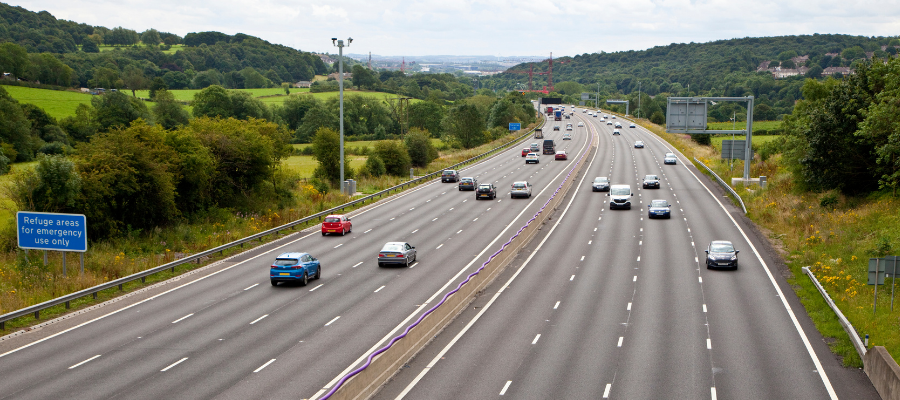🕒 Article read time: 2 minutes
Smart motorways only a partial solution, Logistics UK tells MPs

Logistics UK provided evidence to the Transport Select Committee on the roll-out and safety of smart motorways recently (19 May 2021), following the business group’s written submission earlier this year.
Huw Merriman MP, the Committee Chair, introduced the meeting as the first into inquiry on the safety of smart motorways. Elizabeth de Jong, Director of Policy at Logistics UK, was questioned by MPs who sit on the committee, alongside representatives from the AA, RAC and West Midlands Police, as well as those ultimately responsible for the roll out – Highways England and the Department for Transport.
At the outset of the session, Merriman stated that its purpose was to discuss the case for and against reinstating the hard shoulder where it is not currently used, examining how safe smart motorways are and looking at the government’s stock take published in March and Highways England’s recently released one-year progress report.
When asked to give her opening statement, Elizabeth de Jong said: “Safety of course is of paramount importance to the logistics industry and our assessment of the safety of smart motorways is very much focused on the published statistical evidence. Overall, we agree that Highways England’s evidence aligns with government’s overall finding that most smart motorways are as safe as if not safer than conventional ones but not in every way.”
While broadly supporting the continued existence of smart motorways, she suggested that further measures are needed to address the accident rate. “Logistics UK supports the need for the dynamic hard shoulder to be removed replaced by all-lane running,” Elizabeth de Jong said, “We believe that that would remove a lot of confusion.”
She also argued for greater public awareness and education, along with an increased police presence to ensure the correct use of smart motorways: “We do appreciate that smart motorways have a role to play in increasing capacity, reducing congestion and leading to more reliable journey times.”
On congestion, Elizabeth de Jong said it is estimated that a typical city requires around 45,000 tonnes of freight to be delivered to it each day. Smart motorways help relieve congestion by increasing the utilisation of existing infrastructure. To reduce congestion in the long term, however, additional capacity is required.
“We clearly need different types of infrastructure investment away from smart motorways as well,” she said. “We need new capacity and other pinch points to be addressed. Our economy needs the smooth flowing of freight to function, so it is important.”
The Committee will now take further evidence, including from the government and Highways England, before publishing the findings of the inquiry later this year.
*www.logistics.org.uk/road
Published On: 03/06/2021 17:00:53

Comments Section
If you are a Logistics UK member login to add comments.
In brief
CV PRODUCTION STRUGGLES TO KEEP UP WITH PRE-PANDEMIC LEVELS
The production of commercial vehicles (CV) in the UK increased to 6,177 units in April, according to figures recently published by the Society of Motor Manufacturers and Traders (SMMT). This is a significant increase on April 2020, when just nine units left production lines as COVID-19 stopped manufacturing, and up on the equivalent April 2019, when output was weak owing to model changeovers. However, it is still down 6.1% on the five-year average for the month.
www.smmt.co.uk
Latest articles
National Highways launches Too Close for Comfort campaign
It's time to back off and stop intimidating the person driving in front of you.
Read time: 2 minutes
View article
Policy win: Government launches new strategies around growth, infrastructure and trade
Last month, the UK government published the long-awaited Modern Industrial Strategy, Trade Strategy, and Infrastructure Strategy – each setting out intentions, ambitions and next steps for respective policy areas, central to the future of logistics.
Read time: 3 minutes
View article
Generation Logistics Case Study
Grace Brown, Logistics Degree Apprentice - ASDA.
Read time: 2 minutes
View article